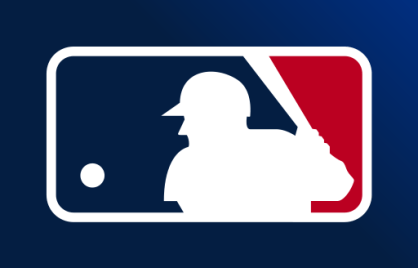Gacha Games: Collectible Fun, Or Something More Sinister?
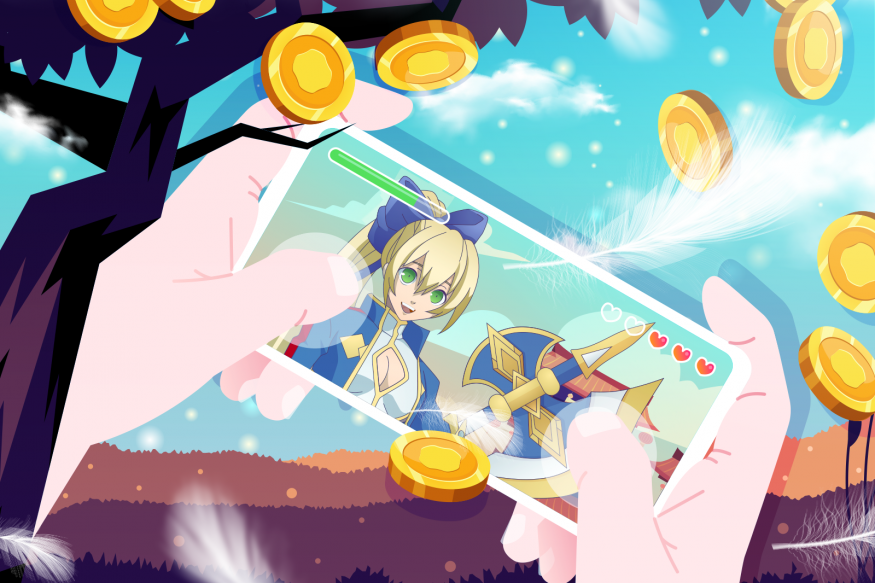
Packed with colorful characters, sought-after skins and all manner of rewards and rarities, Gacha games are a compulsive collector’s dream.
However, with the majority of items being issued via random drops that cost real money to activate, we need to ask whether the Gacha game mechanic is potentially a gateway to more serious gambling.
What Are Gacha Games?
For those unfamiliar with the term, Gacha games are a form of video game that encourage players to redeem in-game currency in exchange for random virtual items.
Taking their name from Gachapon – the toy capsule vending machines popularized in Japan – a key characteristic of Gacha games is that players never really know what they’ll receive for their purchase.
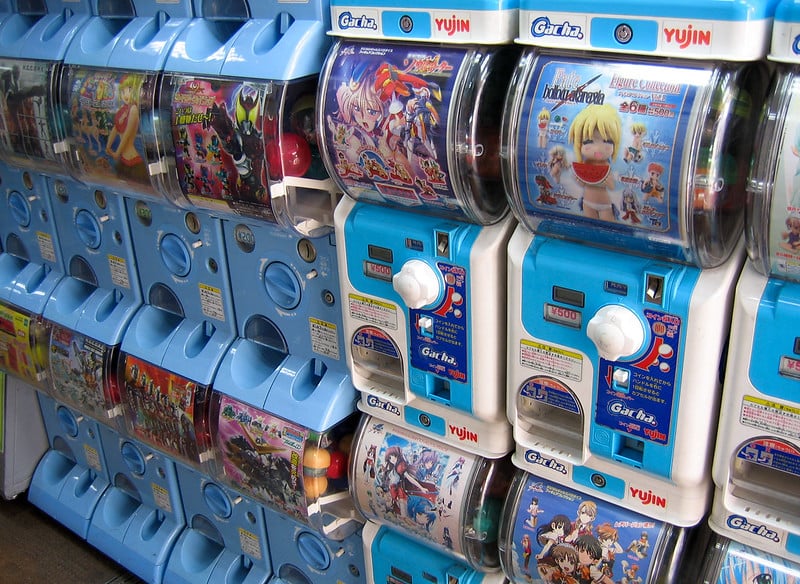
Just as a Gachapon capsule will contain a random figure from any number of sets, when paying for a roll in a Gacha game, the results can virtually never be guaranteed.
Sure, players might hit the jackpot and land a premium playable character, but they’re just as likely to reveal an unwanted item or one they already own – and both outcomes cost them exactly the same.
With the majority of Gacha games being free-to-play (F2P) mobile games, the Gacha mechanic serves as an incentive for players to continually spend real-world money.
Takings in this respect can go on indefinitely and have the potential to easily eclipse the profits developers would make by charging a one-time fee to purchase the game.
How Did The Gacha Phenomenon Get Started?
The first Gacha mechanic was debuted in 2004 MMORPG, MapleStory, which enabled players to purchase Gachapon tickets for 100 yen apiece.
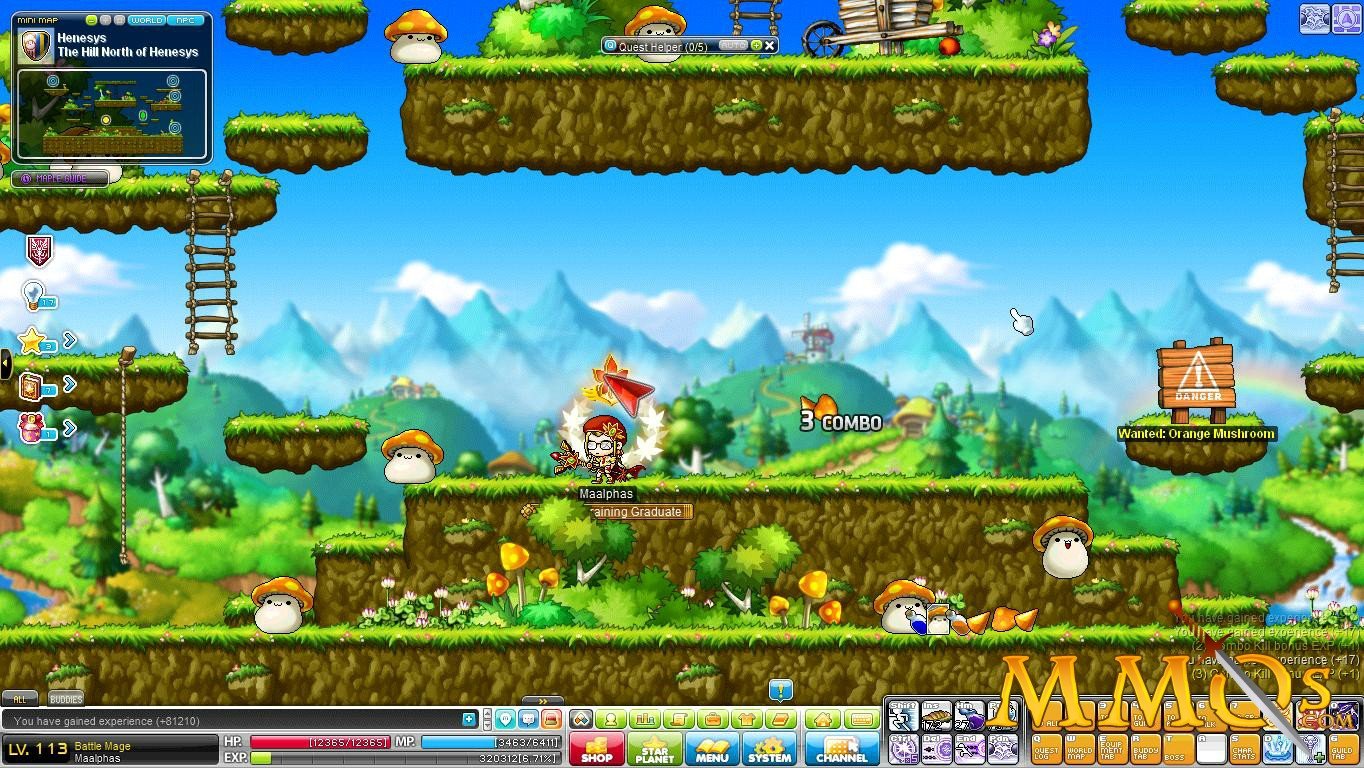
These tickets granted entry into a lottery where players had a chance to win trinkets of varying rarities, with these then being used to customize their character so they could flaunt their fancy prizes online.
Three years later, Chinese MMO Zhengtu took the concept even further by offering an FTP game that sought to recoup its costs entirely through Gacha rolls that granted players extra perks and privileges.
Despite being widely criticized for its predatory practices, Zhengtu proved to be a rip-roaring success, with the F2P title generating an unprecedented $15 million USD per month within a year of its release.
The commercial triumph of Zhengtu paved the way for the Gacha model to rise to prominence in the early 2010s, especially in Japan, where it became an integral part of the country’s mobile game culture.
How Gacha Games Have Taken Over The Western World
Okay, we get it. Gachapon toy capsules. MMORPGs. Zhengtu. It all sounds more than a little alien to a western audience.
However, the reality is the Gacha game model is now a worldwide phenomenon.
Far from being a proclivity of players solely from the land of the rising sun, Gacha mechanics have found their way almost unnoticed into virtually every culture and gaming medium across the globe.
From Facebook to FIFA, players in the western world will find examples of Gacha games everywhere, with big-name developers such as EA, Ubisoft and Activision all employing the model to great effect.
FIFA Ultimate Team (FUT), for example, is an incredibly popular game mode that allows players to purchase packs that include a random selection of players, collectibles and stat-boosting power-ups.
In FIFA digital sales – including Ultimate Team pack purchases – alone, EA rakes in profits of over $1 billion USD a year, with these microtransactions now forming the core business of the entire game.
Similarly, Gwent – CD Projekt Red’s F2P app based on the popular Witcher series – is just one of the many digital collectible card games that utilizes a Gacha mechanic to help players build their decks.
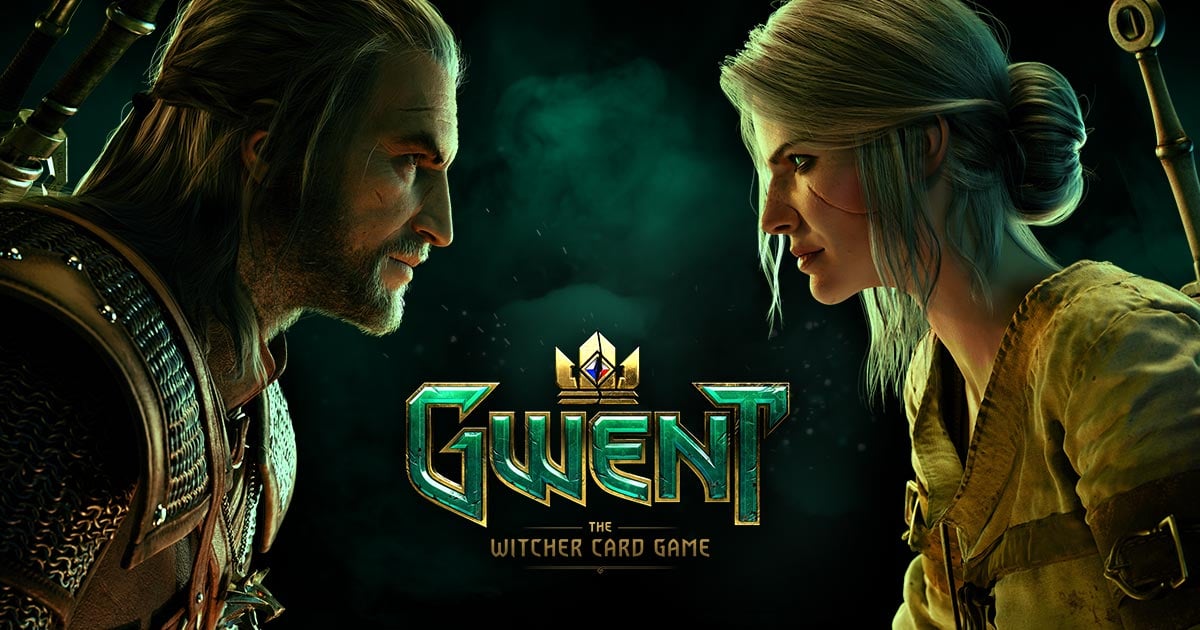
In Gwent, microtransactions enable players to use real-world money to purchase kegs that contain a random assortment of common, rare, epic and legendary cards.
To further complicate matters, they can also exchange their cash for “meteorite powder”, which can be used to upgrade existing cards or buy exclusive items in-store.
Should Gacha Games Be Classified As Gambling?
Naturally, using microtransactions made in real-world currency to purchase randomly-generated rewards raises some serious ethical questions.
After all, if you’re spending real money to win something from a process where the outcome is always unknown, aren’t you essentially playing roulette?
As is often the case, there are two main schools of thought.
The Case For Gacha Games As Gambling
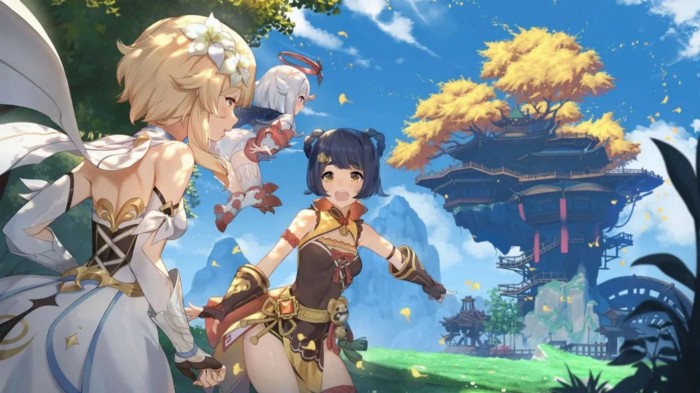
The gambling aspect of Gacha games is one that has dogged developers in recent the years, with critics arguing the mechanic is predatory and designed to trap users into paying to enhance their experience.
Perhaps one of the more insidious aspects of Gacha games is the presence of social currency, with a survey from Statista revealing that of the top 20 percent of RPG apps in Q1 2021, 88 percent were using this feature.
The purpose of these social currencies is likely to be two-fold.
One the one hand, using an artificial currency makes transactions feel less real and often encourages players to spend more than they would using real money.
This tactic is, of course, akin to the use of betting chips in a casino.
Secondly, offering social currencies enables developers to place an extra step between the purchase and the part of the process that could be considered gambling.
After all, players aren’t spending real-world money on a random prize – they’re buying $40 worth of tokens which can then be used on Gacha rolls. Initially, they’re getting exactly what they’ve paid for.
Another consideration is the way these Gancha rolls or drops are presented.
Card kegs crackle and explode, while the lids of loot boxes shoot off as dazzling rays of light radiate from the rewards inside.
All these visual and audio distractions help players psychologically distance themselves from the money they’re spending – money which, once converted into social currency, cannot be traded back.
The Case Against Gacha Games As Gambling
On the flip side of the argument, there are many cases that both game developers and the authorities who regulate them could put forward for Gacha games not being gambling.
Chief among them would be the fact that there is no chance of losing a Gacha roll.
Players will always get something for their money, with even duplicate rewards being exchangeable for other resources.
Secondly, the aforementioned purchase of social currency cannot really be considered a random outcome.
If players are exchanging $40 of cash for $40 of social currency, they’re obtaining a known quantity – and this currency can often be used for other in-game purchases that aren’t randomly-generated.
From a purely legal perspective, many international statutes also require the prize to be a “thing of value” before playing for it to be considered gambling.
As in-game rewards cannot be redeemed for real money, developers are able to skirt around these regulations by preventing players from trading them.
Another important point is that developers – and some players too – would contend they’re not paying for the Gacha roll itself, but merely the service provided by a game that is usually free to download.
With this in mind, many players are inclined to support the developers they like by spending money on microtransactions, with this in turn helping them to get more enjoyment from the product itself.
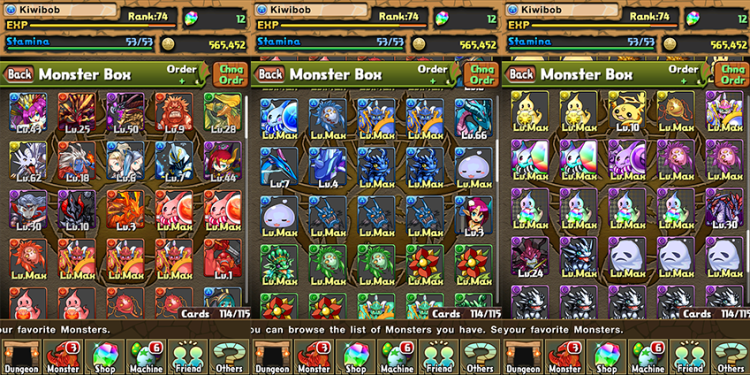
Weighing Up The Gacha Game Debate
Weighing up both sides of the argument, it’s pretty hard to come to the conclusion that Gacha games should not be considered at least a form of gambling.
With companies such as EA and Blizzard known to use neuroscientists and psychologists during game development, there can be little doubt that players are being subtly influenced to spend more.
Social currencies help them disassociate this spending from real money, while the euphoric lights and sounds that accompany the opening of a loot box are there to make them feel adequately rewarded.
The defense, meanwhile, comes for the most part from the game developers themselves and largely hinges on legal technicalities and questions of semantics, neither of which address the issue at hand.
How Much Revenue Are Gacha Games Pulling In?
Needless to say, Gacha games are big business.
Back in 2012, the Japanese mobile game Puzzles & Dragons became the first Gacha title to eclipse $1 billion USD in profits and current trends suggest that it won’t be long before other games follow suit.
Take, for example, Chinese game studio, miHoYo – developers behind the hit game, Genshin Impact.
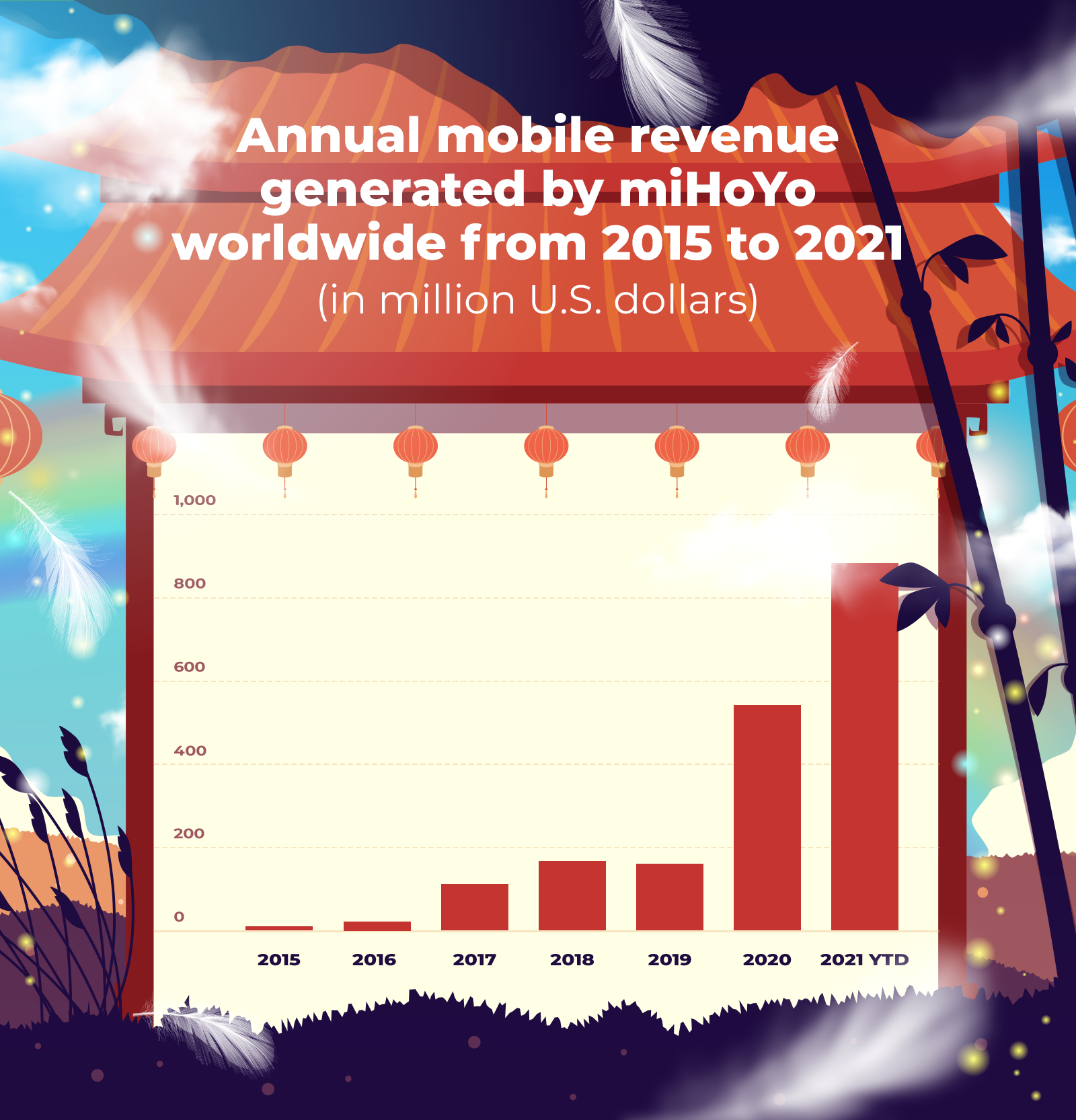
As you can from the table above, the company’s annual mobile revenue – though strong – was pretty flat year-on-year until Genshin Impact arrived in 2020.
An F2P open world RPG that requires players to unlock characters by opening “wishes” which can only be purchased using in-game currency, Genshin Impact swiftly became miHoYo’s highest-grossing title.
In the year following its release, miHoYo’s profits soared by around $500 million USD, with similar growth being recorded in 2021.
This was aided in no small part by the release of Genshin Impact 2.1.
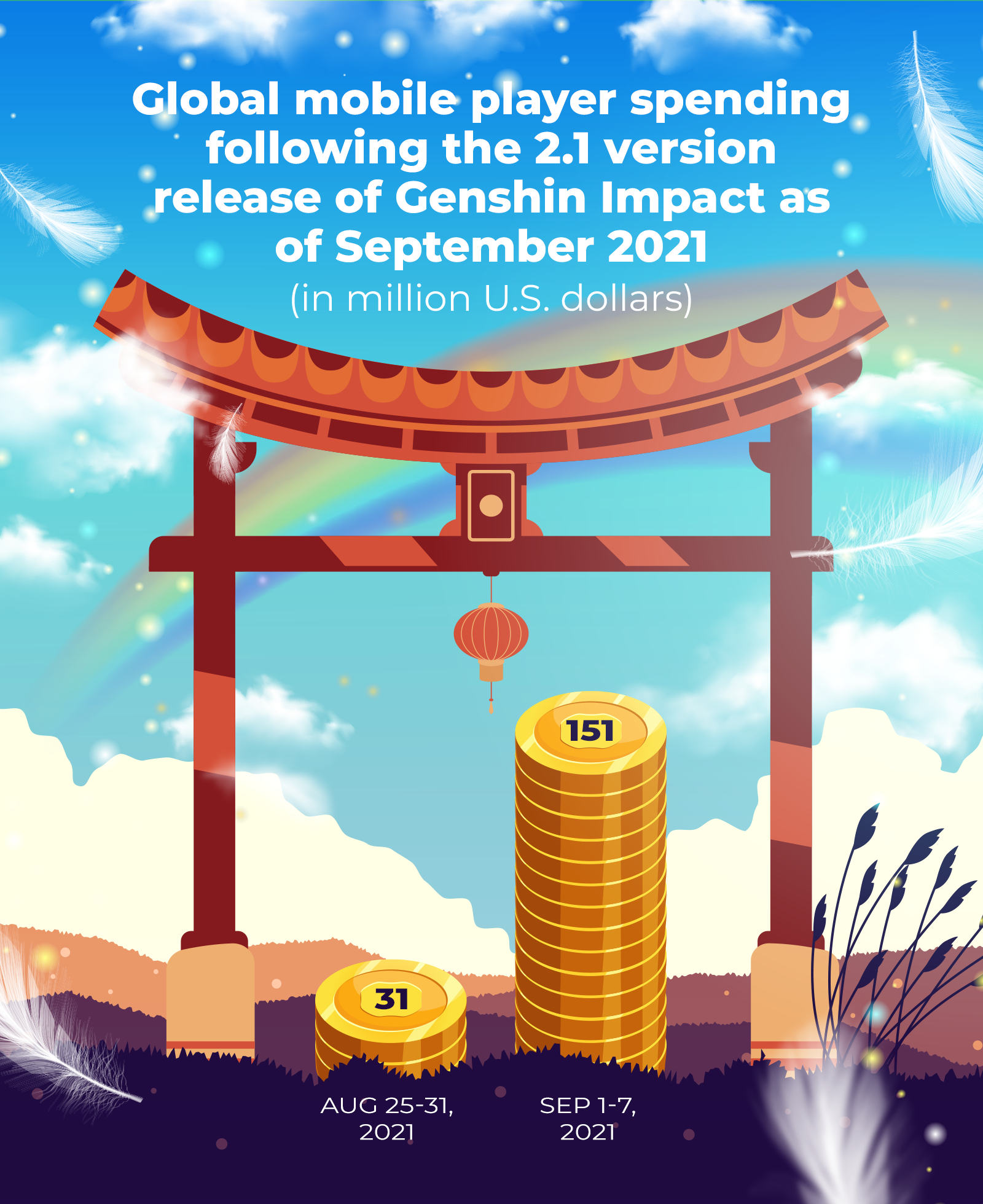
Released in September, Genshin Impact 2.1 offered players a host of new characters, weapons and explorable regions, many of which were issued as time-limited rewards.
The presence of these new features was designed to test players’ appetite for making more in-game purchases – and boy, were they hungry for them.
In the week Genshin Impact 2.1 went live, in-app purchases rose by an incredible 387 percent on the previous week to a total of $151 million USD.
Since then, multiple updates have continued this trend, with Genshin Impact going on to become one of the top-grossing mobile gaming titles worldwide.
Are Gacha Games A Danger To Younger Players?
Considering all this, it might come as some surprise to readers that Genshin Impact is rated “T” for teens – meaning its recommended for players 13 years and up.
Given the game’s Gacha mechanic and the undoubted parallels between this and online gambling, it’s undeniably a bit concerning that players under 18 are free to spend their money on rolls of chance.
According to a study published by the UK Royal Society for Public Health, 1 in 10 minors go into debt over loot boxes, with 11 percent using their parents’ credit card and 9 percent borrowing cash they couldn’t repay.
Furthermore, research conducted by CQUniversity Australia on 2,000 gamers between 12 and 24 indicated that 93 percent had played a game containing loot boxes in the past year.
Within that sample, players between 12 and 17 also spent a median of $50 a year on in-app purchases.
Based on studies like this, it’s not hard to see how early involvement in Gacha games could potentially provide a gateway to other forms of gambling and the problems that are often associated with them.
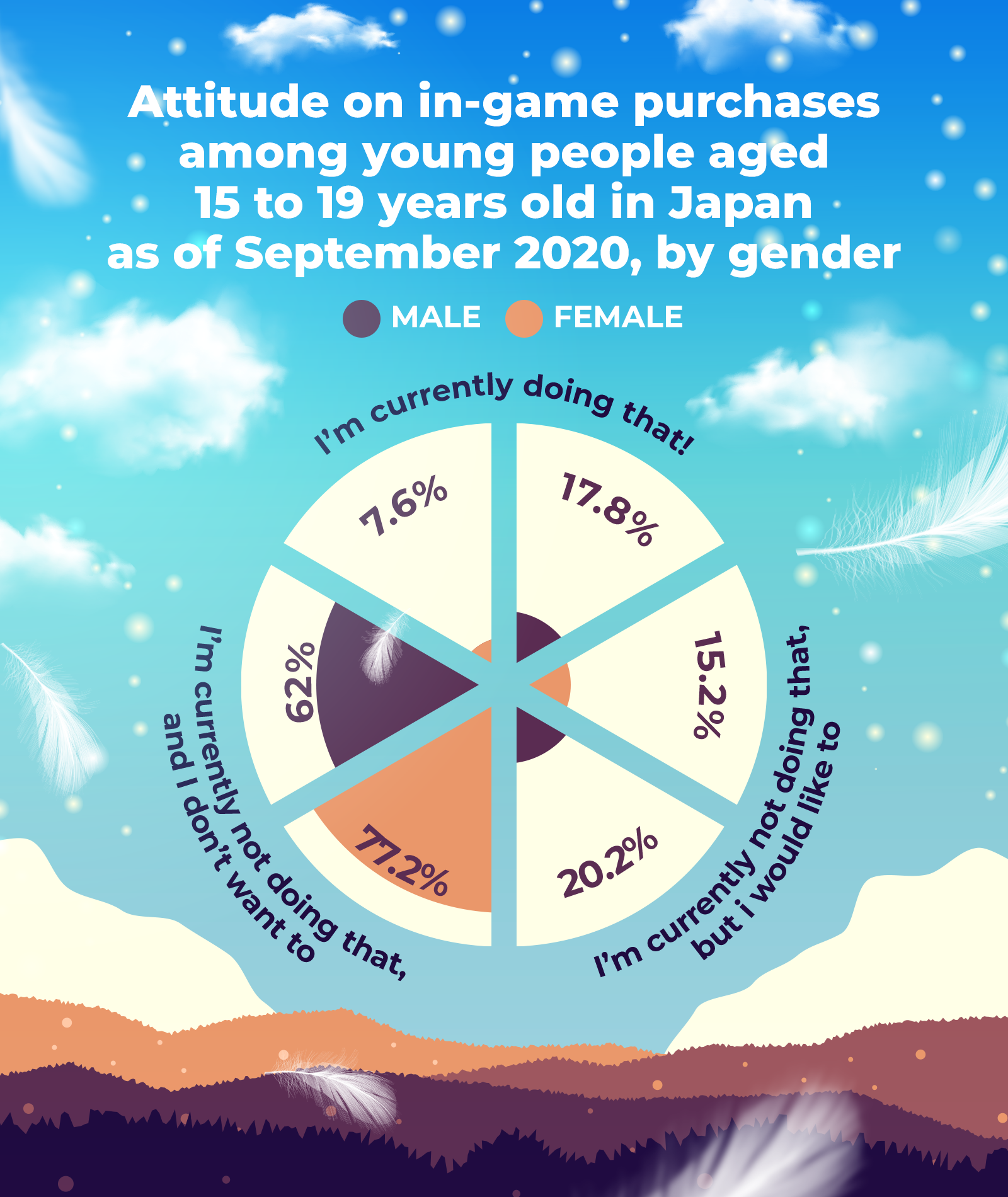
Worryingly, a 2020 study of teenagers in Japan indicated that almost 18 percent of males aged between 15 and 19 were currently making in-app purchases, while a further 20 percent would be interested in doing so.
While these figures were slightly lower for females at 7.6 percent and 15.2 percent respectively, the conclusion remains the same – the popularity of Gacha games is on the rise and better protections are needed.
What Does The Future Hold For Gacha Games?
Given their incredible popularity with players and the vast sums of revenue that they draw in for developers, it’s clear that Gacha games aren’t going anywhere.
However, given their addictive qualities and the undeniable similarities they have to online gambling, it seems likely the regulations surrounding them will have to be reviewed.
With new measures needed both to ensure players under the age of 18 don’t spend money they can’t afford and to limit the access problem gamblers have to Gacha games, there’s a lot to be done.
Video game rating system PEGI has recently added a warning icon for titles that include in-app purchases, but greater scrutiny of the practices used by companies offering them is also long overdue.

